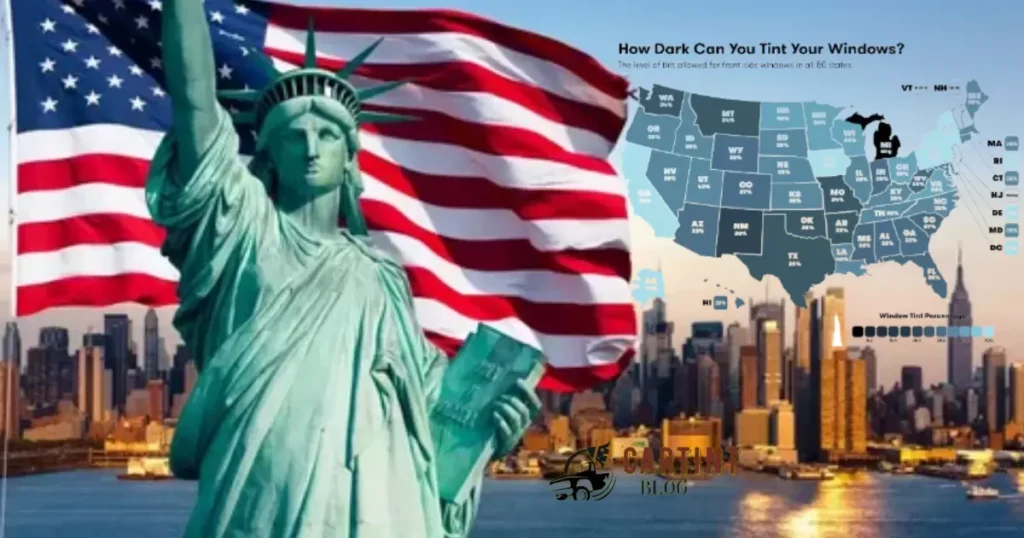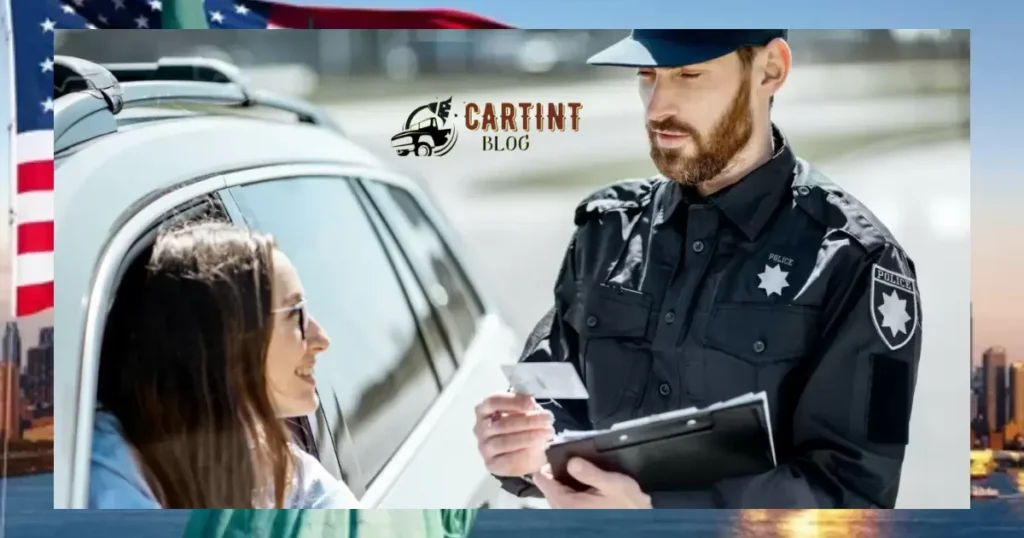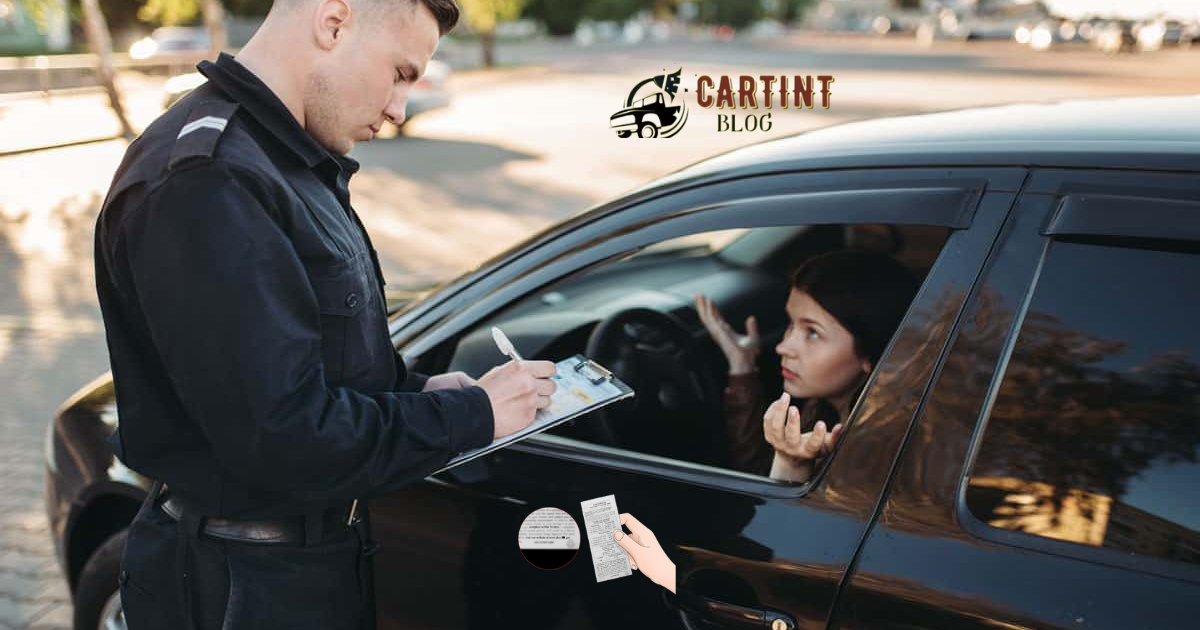Have you ever wondered about the consequences of receiving a tint ticket out of state? In simple terms, getting a tint ticket out of state refers to being issued a citation for window tint violations while driving in a state other than your home state. It’s a common concern for many drivers who may not be aware of the varying tint laws across state lines.
Can you get a tint ticket out of state? The answer might surprise you. As you hit the road and cross state borders, the regulations regarding window tint can change, potentially leading to a ticket. Understanding these differences is crucial for any driver, making it essential to stay informed about tint laws in each state you traverse.
Navigating the regulations on window tint can be challenging when driving across state lines. A tint ticket out of state is more than an inconvenience as it may lead to fines and impact your driving record. Being aware of and adhering to tint laws in different states is a proactive approach to avoid such penalties and ensure a smooth journey on the road.
State Laws Vary
There are rules pertaining to window tinting in every state. You are governed by the laws of the state you are in when driving over state borders, not the state in which your car is registered.
This implies that your window tinting may not adhere to the regulations in the state you’re visiting, even if it is permitted in your home state.
Tint Laws Across the United States

Car tint laws vary across the United States. Each state has its own regulations regarding the darkness of window tint. For instance, in California, the front side windows must allow more than 70% of light, while in Texas, the minimum requirement is 25%.
These laws aim to ensure driver visibility and safety on the road. Getting a car tint ticket is a serious matter. Penalties can include fines, and in some cases, law enforcement may even require removal of the tint on the spot.
It’s crucial for drivers to be aware of their state’s tint laws and comply with them to avoid legal consequences. Checking and adhering to the specific tint regulations in your state, especially when considering What Is The Best Type Of Window Tint For Cars?, can help you stay within the legal limits and prevent any unwanted car tint tickets.
Here’s a simplified table providing an overview of car tint laws across different states in the United States.
| State | Front Side Windows Tint Limit | Back Side Windows Tint Limit | Rear Window Tint Limit | Windshield Tint Limit |
| Alabama | No more than 32% | Any darkness allowed | Any darkness allowed | AS1 line or 6 inches |
| California | 70% or more | Any darkness allowed | Any darkness allowed | Top 4 inches |
| Florida | Non-reflective film, 28% or more | Any darkness allowed | Any darkness allowed | Non-reflective band, 25% |
| Texas | 25% or more | Any darkness allowed | Any darkness allowed | Non-reflective band, 5 inches |
| New York | 70% or more | Any darkness allowed | Any darkness allowed | Top 6 inches |
| Illinois | 35% on front side windows | Any darkness allowed | Any darkness allowed | Non-reflective band, 6 inches |
| Arizona | 33% or more | Any darkness allowed | Any darkness allowed | Top 5 inches |
| Georgia | 32% or more | Any darkness allowed | Any darkness allowed | Non-reflective band, 6 inches |
| Ohio | 50% or more | Any darkness allowed | Any darkness allowed | Non-reflective band, 5 inches |
| Washington | 24% on front side windows | Any darkness allowed | Any darkness allowed | Top 6 inches |
Tint laws can change, and the percentages provided are general guidelines. Always refer to the specific state’s regulations for the most accurate information.
Tint laws can be classified into three categories
Car tint laws fall into three distinct categories light transmittance, darkness of tint, and reflective properties. These regulations vary from state to state, impacting the permissible levels of tint for vehicle windows. Understanding these classifications is crucial for drivers to ensure compliance with local laws and avoid potential fines.
Light Transmittance
Car tint regulations vary by jurisdiction. Ensure your tint complies with local laws. Average legal light transmittance requirement is 70% or higher for front windows.
Darkness of Tint
Legal tint darkness is usually specified as a percentage of light blocked. Common limits range from 20% to 70%, with lower percentages indicating darker tint.
Reflective Properties
Reflective tint can pose issues, with limits often set around 20% reflectivity. Check local regulations to avoid penalties related to excessive reflective properties.
Getting a Tint Ticket Out of State
If you receive a tint ticket out of state, address it promptly. Check the specific tint regulations in the state where you got the ticket. Provide documentation proving your tint complies with that state’s laws. Contact the relevant court or authorities to resolve the matter efficiently.
When dealing with a car tint ticket, gather essential documents. These may include your vehicle registration, proof of compliance with tint laws, and the citation itself.
Communicate respectfully with the issuing officer or court, presenting the required information to rectify the situation. Be proactive in resolving the ticket to avoid any potential consequences.
Handling a Tint Ticket Out of State

If you receive a tint ticket out of state, address it promptly. Contact the issuing agency for specific details on payment and resolution. Keep in mind that tinting laws vary by state, so ensure compliance with the local regulations.
For handling a car tint ticket, gather all necessary documents, such as your driver’s license and vehicle registration. Pay any fines promptly to avoid potential legal consequences. If unsure about the tint level, measure it to confirm compliance with the local tinting laws.
Always stay informed and take immediate action to resolve any out-of-state tint ticket efficiently.
How to get a window tint ticket dismissed?
If you’ve received a window tint ticket, follow these steps to increase your chances of dismissal. First, review the local tint laws, ensuring your car complies. Collect evidence, like tint measurements, to prove adherence.
Present this information professionally in court, highlighting compliance with regulations. Consider consulting a legal professional for guidance tailored to your situation. Act promptly, as timely response improves your case’s credibility.
Remember, clarity and factual presentation are key when contesting a car tint ticket.
What to say if you get pulled over for tint?
If you’re pulled over for tinted windows, stay calm. Roll down your windows and turn off the engine. When asked, provide your license, registration, and insurance promptly.
In the U.S., tint laws vary by state. Ensure your tint complies with local regulations. If cited, check the ticket for details.
Most fines range from $100 to $200. Contesting the ticket is an option. Present proof of tint removal to reduce fines. Always stay polite and follow the officer’s instructions.
Has anybody ever gotten a ticket for having dark tint?
Yes, people have received tickets for dark tint on their cars. Law enforcement issues these tickets because dark window tint can violate visibility regulations. In the United States, each state has its own tinting laws, with variations in allowed tint levels for front, back, and side windows.
If you want to avoid a car tint ticket, ensure your tint complies with your state’s regulations. Check the specific tint percentage allowed for each window, as violating these limits can lead to fines and removal orders. Stay informed about local laws to maintain legal and safe tinting on your vehicle.
Can you go to jail for illegal tint?
Yes, having illegal tint on your car can lead to legal consequences, including the possibility of going to jail. The severity of the penalty varies depending on your location and the degree of the violation.
For instance, in some states, a car tint ticket may result in fines ranging from $100 to $500 for a first offense. It’s crucial to adhere to the specific tinting laws in your area to avoid legal issues.
Understanding the tint percentage allowed and ensuring compliance with regulations can help you steer clear of fines and potential imprisonment. Always check local laws to stay informed and maintain a professional approach to avoid legal complications related to car tint violations.
Out of State Tint Ticket
If you receive an out-of-state tint ticket, address it promptly. Contact the issuing state’s DMV for details. Pay the fine or resolve the issue to avoid potential consequences.
For a car tint ticket, check your local regulations. Tint limits vary by state, so know your state’s rules. Ensure compliance to prevent fines or legal trouble. Keep your vehicle’s tint within the allowed limits to stay on the right side of the law.
FAQs
How much is the fine for tinted windows in Pakistan?
Fines for tinted windows in Pakistan can range from PKR 500 to PKR 2,000, depending on the severity of the violation.
What state allows the darkest tint?
Each U.S. state has different tinting laws, but as of my last knowledge update in 2022, New Hampshire allows the darkest legal tint, with no specific percentage limit.
Are window shades legal in Pakistan?
Window shades are generally legal in Pakistan, but it’s crucial to ensure they comply with regulations on light transmittance and darkness.
What does 70 tint look like?
A 70% tint allows 70% of light to pass through, appearing nearly transparent with a subtle tint that reduces glare and provides a light shading effect.
Has anyone ever actually got into trouble with police for tint?
Yes, many individuals have faced legal consequences for violating tint regulations, including fines and potential orders to remove or adjust the tint.
Conclusion
When it comes to getting a tint ticket out of state, it’s crucial to understand that tint regulations vary across different states. While you might have legal tint in one state, it might not comply with the rules in another.
Always be aware of the tinting laws in the state you are currently in, as law enforcement can issue tickets based on the local regulations, even if your tint is considered legal in your home state. Stay informed and make sure your car’s tint aligns with the specific rules of the state you’re driving through to avoid any unexpected tickets or legal issues.
Being proactive about understanding and adhering to tint laws in each state can help you steer clear of potential trouble and ensure a smoother journey on the road.



